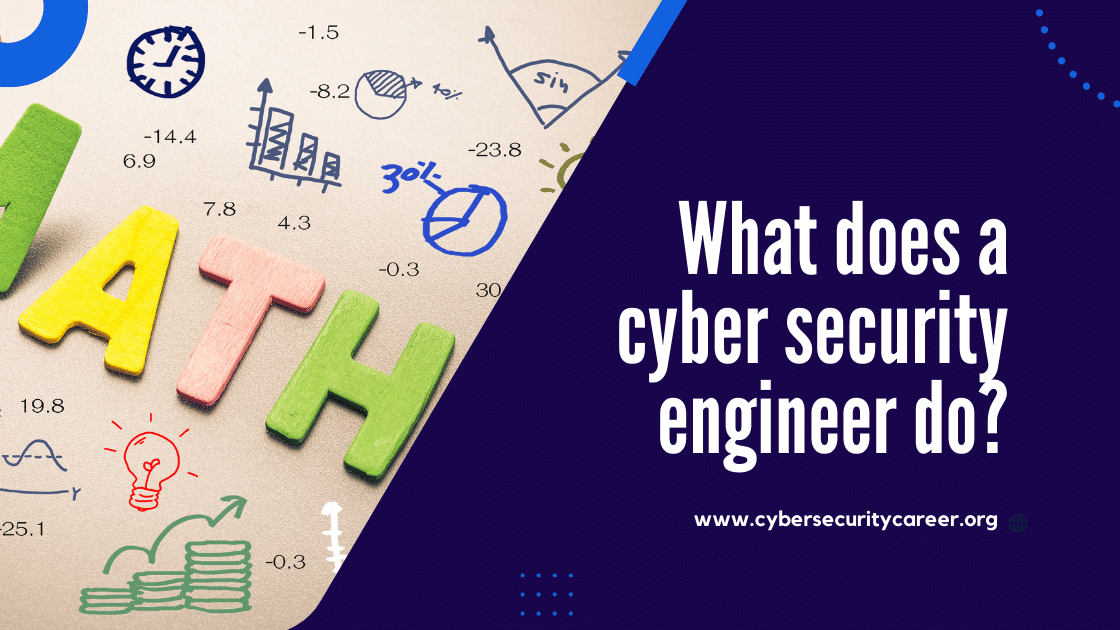Introduction
Cyber security is a field that requires both technical and mathematical knowledge. In order to become a successful cyber security specialist, it is important to have a good understanding of how data works, how computers operate and the mathematics behind cyber security systems. But what kind of math do you need to understand in order to succeed in this field? In this blog post, we will discuss some of the key concepts related to mathematics within cyber security so you can be better prepared for entering the field.
Basic Cyber Security Math
A basic understanding of cyber security math starts with understand binary numbers, which are the basis for all computer code. The next step is to understand how those binary numbers are used to represent information, which is done through algorithms. Algorithms are a set of instructions that tell a computer what to do, and they can be used to encrypt or decrypt information. Finally, you need to be able to understand basic statistics, which will help you analyze data and identify trends.
More Advanced Cyber Security Math
When it comes to more advanced math for cyber security, there are a few key areas that you will need to be proficient in. These include probability and statistics, linear algebra, and calculus. Probability and statistics are important for understanding the likelihood of certain events occurring, which can be helpful in identifying potential security threats. Linear algebra is used for modeling and analyzing data, which can be helpful in detecting patterns that could indicate a security breach. Calculus is used for optimizing and troubleshooting systems, which can be helpful in ensuring that systems are secure and running smoothly.
The Importance of Cyber Security Math
As the world becomes increasingly reliant on technology, the need for cyber security grows. And with that need comes a demand for those with the skills to protect our data. One important component of a cyber security professional’s skill set is math.
While some may think that math is only needed for more technical aspects of cyber security, like cryptography, that’s not the case. Math is used in all sorts of ways in cyber security. It can be used to model and simulate threats, design algorithms, and analyze data.
For example, let’s say you want to design a new cybersecurity system. You’ll need to model the system and its components to see how they interact with each other. You’ll also need to simulate different attacks to see how well the system holds up. This process requires a good understanding of mathematics.
Or maybe you want to develop a new encryption algorithm. To do this, you’ll need to be able to understand and work with complex mathematical concepts like number theory and probability.
And finally, data analysis is a big part of many cybersecurity jobs. Professionals in this field need to be able to sift through large amounts of data to find patterns and trends. They also need to be able to use statistical techniques to assess risk and make predictions about future attacks. All of this requires a strong foundation in mathematics.
So as you can see, math is an important part of cyber security. It’s used in all sorts of ways, from designing systems to analyzing data. If you want to become a cyber security professional, it’s important that you have a solid understanding of mathematics.
Basic Arithmetic and Algebra
Arithmetic is the most basic form of mathematics and is often thought of as simply the ability to count. However, arithmetic is also the foundation for more complex mathematics, such as algebra. Algebra is a branch of mathematics that uses symbols and equations to represent relationships between things. Algebra is essential for solving problems in many areas of science and engineering.
Cyber security relies heavily on mathematics, specifically on algorithms. Algorithms are sets of instructions for carrying out a task or solving a problem. They are used extensively in cyber security, for tasks such as encryption and decryption, data compression, and detecting malware. To be able to understand and work with algorithms, a good understanding of arithmetic and algebra is essential.
Geometry and Trigonometry
A working knowledge of geometry and trigonometry is important for many cyber security jobs. For example, a systems administrator might need to calculate the area of a data center in order to estimate cooling costs. An information security analyst might use trigonometry to determine the angle of an attacker’s trajectory in order to thwart their efforts. And a cryptographer might use geometry to visualize complex mathematical problems.
Discrete Mathematics
Discrete mathematics is the mathematical study of discrete objects. Discrete mathematics includes a wide variety of topics, such as combinatorics, graph theory, and number theory. It is a critical tool for cyber security professionals, as it provides the foundation for important concepts like cryptography and network security.
In order to understand the basics of cyber security, you need to have a strong foundation in discrete mathematics. This will allow you to understand complex concepts like encryption and network security. Without a strong understanding of discrete mathematics, it will be difficult to effectively secure your data and protect your networks from attack.
Calculus
Calculus is the mathematics of change, in the same way that algebra is the mathematics of equations and geometry is the mathematics of shapes. It is used to model things that change continuously, like the growth of a population or the movement of a fluid.
Calculus is essential for many cyber security applications. For example, it can be used to model the spread of a virus through a network, or to optimize the routing of data packets through a network. It can also be used to predict patterns of user behavior, which is important for detecting and preventing fraud.
Linear Algebra
Linear Algebra is the mathematics of vectors and matrices. It is used for solving systems of linear equations and analyzing linear transformations. Linear Algebra is a critical tool for Cyber Security professionals for understanding and working with data.
Probability and Statistics
When it comes to cyber security, there are a lot of different mathematical concepts that come into play. Probability and statistics are two of the most important ones. Probability is all about figuring out the likelihood of something happening, and statistics is all about collecting, analyzing, and interpreting data.
Cyber security analysts need to be able to understand and work with both probability and statistics. They use probability to figure out the likelihood of a cyber attack happening, and they use statistics to analyze data from past attacks in order to better understand how they can be prevented in the future.
Probability and statistics are important tools for any cyber security analyst. If you’re interested in working in this field, make sure you brush up on your skills in these areas!
Conclusion
Cyber security is an increasingly important field, and it requires a variety of math skills. Though the exact types of math needed will vary depending on the specific job, basic algebra and probability are two areas that are commonly needed for most cyber security positions. Additionally, having knowledge in calculus or statistics can be beneficial as well. With this information in mind, you’ll have a better understanding of what topics to focus on if you’re interested in pursuing a career in cyber security.










Leave a Reply